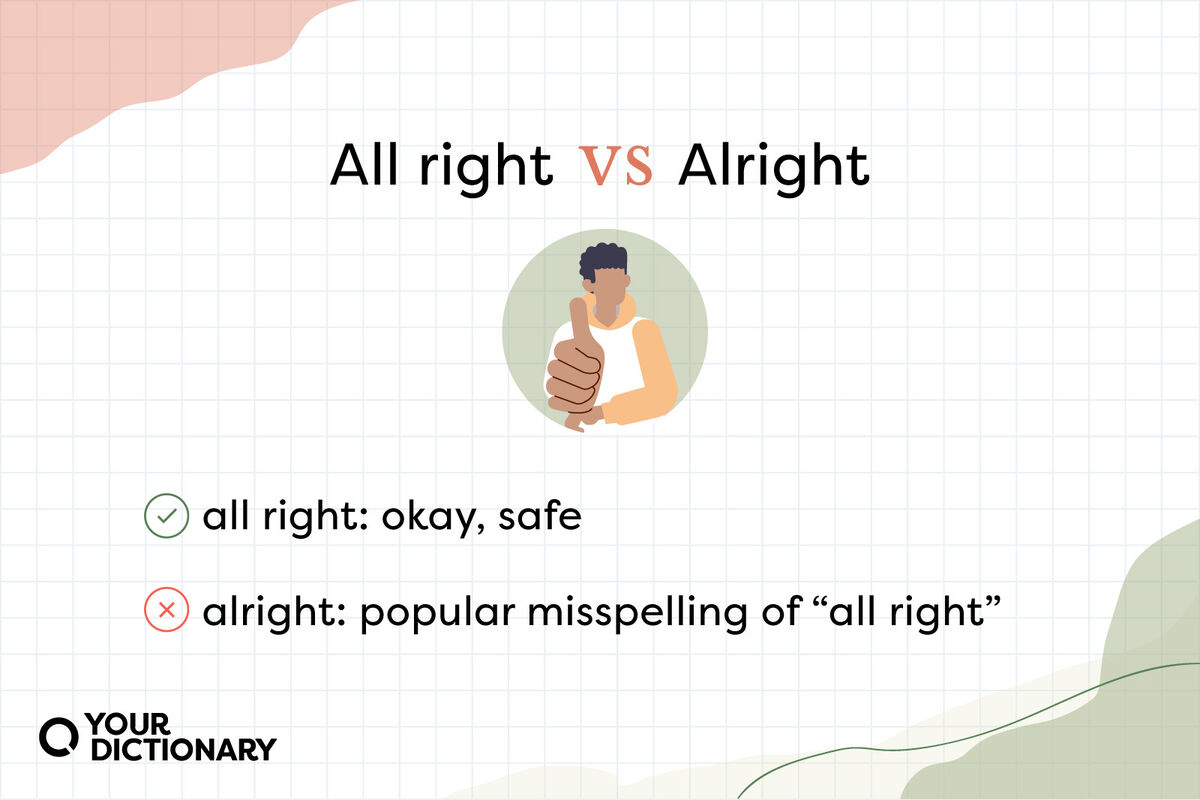
The difference between alright and all right is that all right is the correct spelling of the phrase in American English. The way you use all right depends on the sentence, as it can function as an adjective, an adverb and an interjection. But why do people still use alright — and is it ever acceptable?
How To Use ‘All Right’ as an Adjective
The most common way to use all right is when using it to describe a noun as a synonym for “okay.” You can use it after verbs like be, look, feel, and seem. Some examples include:
- My trip was all right.
- The weather seems all right now that the rain has stopped.
- This dress looks all right on me.
- Your business proposal seems all right to our team.
‘All Right’ Can Mean ‘Well’
Another way to use all right as an adjective is when depicting something as “safe” or “well.” For example:
- I was injured in the accident, but I’m all right now.
- Are you all right? I saw you fall off the curb.
- You’ll be all right after a little rest and hydration.
- Do you feel all right after hearing the bad news?
How To Use ‘All Right’ as an Adverb
You can use all right as an adverb to describe an action performed in a satisfactory way. For example:
- I did all right on the history exam.
- The basketball team plays all right on the road, but much better at home.
- Are you doing all right today?
- The stereo sounds all right to me.
How To Use ‘All Right’ as an Interjection
Since “okay” can be an interjection to mean “fine” or “I’m complying,” you can use all right in the same way. For example:
- All right! I’ll clean my room!
- All right, I understand.
- I passed my driver’s test, all right!
- All right, let’s get going before the restaurant closes.
Why Do People Spell It ‘Alright’?
Many users confuse alright with a number of English phrases that begin with the word all and that have been shortened in everyday writing. They have separate meanings from their unshortened versions. These phrases include:
- already - having happened before now
- all ready - being completely ready, or everyone is ready
- altogether - wholly, or all things considered
- all together - everyone or everything together
- always - at all times
- all ways - every way possible
It would be easy to put alright and all right in this category. However, unlike the words above, there is no difference between the meanings of alright and all right, and therefore no reason to use alright in any situation.
‘Alright’ in the Dictionary
Learning the difference between these phrases can be especially confusing because alright is an entry in most dictionaries. You may even find that your spellchecker prefers alright. That’s because the dictionary often adopts words that have fallen into common usage, including chillax, awesomesauce, noob, and woah. However, like alright, these words don’t belong in formal writing. Use it in your text messages if you must, but choose all right in your professional or academic writing.